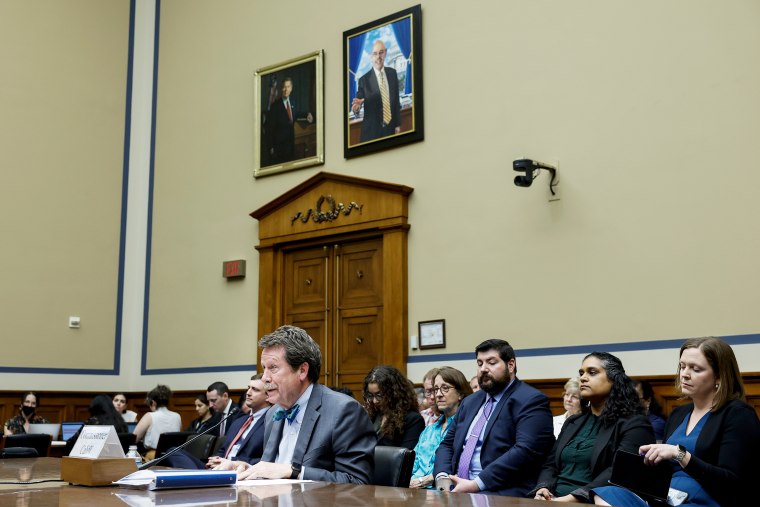The director of the Food and Drug Administration (FDA) urged Congress this Thursday to pass a law that requires food manufacturers to test for the presence of lead in products imported into the United States.
Dr. Robert Califf responded to a question from Democratic Rep. Jamie Raskin, a top member of the House Oversight and Accountability Committee, during a hearing addressing the FDA's response to issues like applesauce and cinnamon sachets contaminated with lead, which have made hundreds of children sick.
Florida-based WanaBana's applesauce pouches were recalled in the fall after high levels of lead were detected in them. That product was imported from Ecuador.
Califf explained that the FDA oversees products from about 275,000 registered factories in the United States and abroad. Due to budget constraints, the agency often has to rely on the food manufacturers themselves to do your own tests.
Most of the time they do a good job of making sure products are tested, he explained. Sometimes, that doesn't happen.
“In the case of cinnamon applesauce, if there had been mandatory testing, when it was imported into the United States from Ecuador, the stores that sold it probably would have picked it up at that time,” Califf stressed, noting that there is no federal requirement for testing for lead in food.
“This is how the pharmaceutical system works,” he added. “Drug manufacturers have to analyze each batch” to detect possible contamination.
To complicate matters, the FDA does not currently set limits for heavy metals in most foods. Only a handful, including chocolate candies and sugar-based candies, have specific limits for lead. In 2022, the agency released draft guidelines on limits for lead in juices.
Califf's comments come two days after an investigation by Consumer Reports, a consumer advocacy group, found high levels of lead in certain Lunchables products.

The group is now calling on the federal government to remove Lunchables from the national free and reduced-price school lunch program.
The FDA would need Congress to enact legislation giving the agency the authority to impose mandatory testing, Califf explained.
“At the FDA we are arbitrators,” he added. “You, in Congress, are those who write the rules”.

